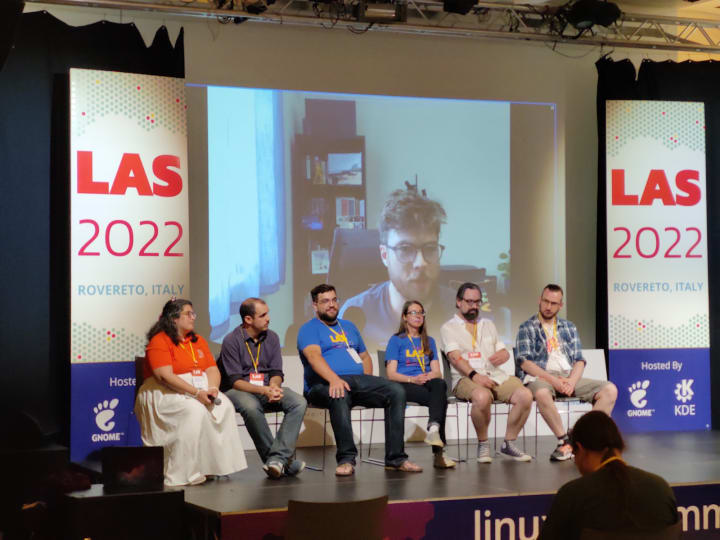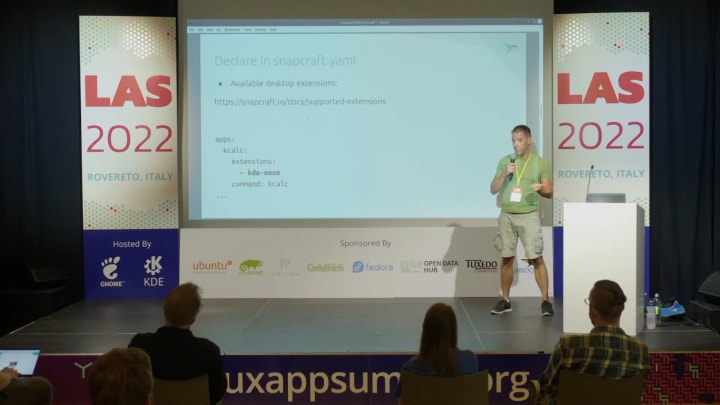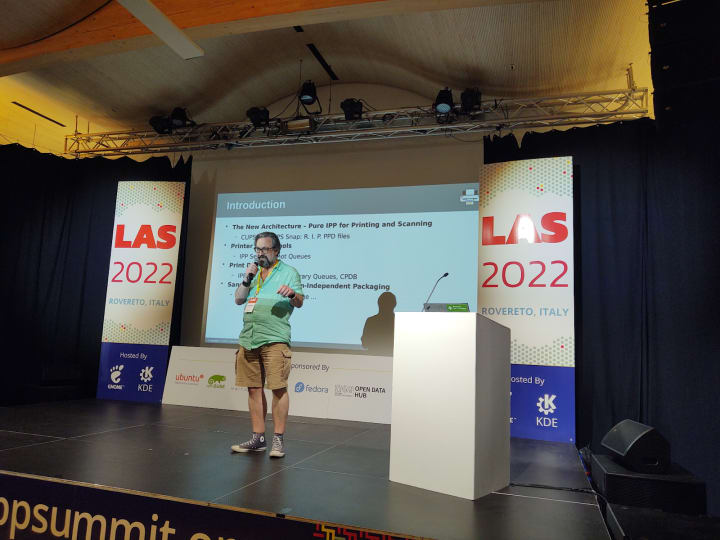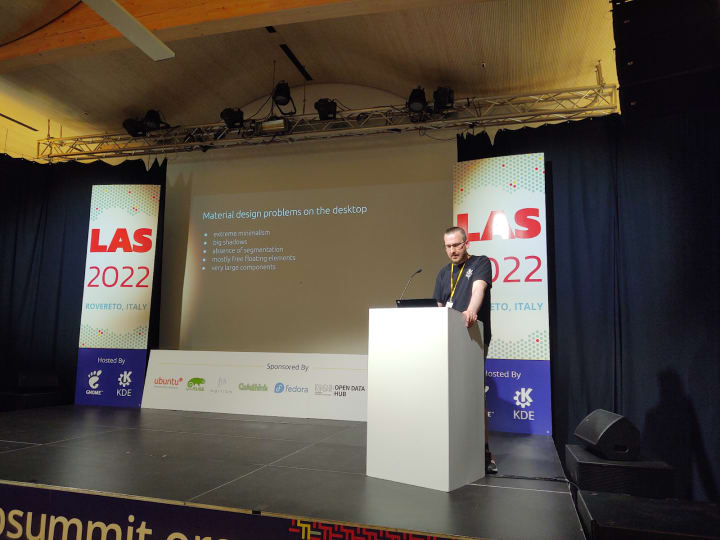Igor Ljubuncic
on 6 May 2022
Linux Application Summit 2022 – And there we were all in one place …
In the last two days of April, the small, picturesque town of Rovereto in northern Italy was the location of this year’s Linux Application Summit (LAS). After a virtual-only experience during the pandemic, the LAS returned with a physical presence, and so did we.
Canonical has long recognized the value and importance of LAS as a cornerstone of open-source cooperation and collaboration. And never before was this more evident than in the 2022’s event, organized by both KDE and GNOME in unison. We’d like to tell you a bit more about LAS, and give our spin to the story.
First Contact
For many, LAS 2022 was the first conference they could attend in person after more than two years of webcam communications, and the human need to be physically present around like-minded people was palpable. While we did learn to adapt to the new reality of online calls and video streaming, technology cannot replace what is inherently a big part of human nature. Invigorated, passionate and optimistic, the open-source enthusiasts from both the GNOME and KDE camps descended on Rovereto for two days of innovation, sharing and fun.

Canonical had a pretty visible presence at the venue, the Smart Lab Youth Club, which hosted the 100 or so people who chose to attend. Britt Yazel was in charge of coordinating the talk schedule, and he made sure the operation went smoothly. Monica Ayhens-Madon was in charge of the orange-themed Ubuntu booth, side by side with the colleagues from openSUSE. Three Canonical employees gave talks, mostly focused around snaps. On top of that, the company hosted no less than two celebratory parties, focused around the recent Ubuntu 22.04 LTS release, a virtual and a physical one!


Extensions, gaming, printing, theming
The first to deliver their talk was Igor Ljubuncic (myself), with a presentation on snapcraft extensions, a mechanism that allows developers to simplify their snap development process. Next to present was Heather Ellsworth, with her talk on the freshly unveiled Steam snap. The session went well, and the news was received quite positively. There is strong demand for gaming on Linux, which was reflected both in the general mood in the auditorium as well as the Internet chatter afterwards.
The third Canonical employee to deliver a session was Till Kamppeter, a veteran face in the printing community, leader and one of the founders of the OpenPrinting project since 2001, and now responsible for the printing stack in all Linux/Unix-like operating systems. Till talked about the history of printing, the old challenges, the modern challenges, the security model of driverless printing, and how these can be satisfied – with snaps.



But we must not forget Frederik Feichtmeier from the Yaru team, who joined the conference as a Canonical guest. On behalf of his colleagues, Frederik talked about their recent work and the finer details of integration of Flutter and Yaru, and the importance of an elegant, consistent desktop interface. With Yaru as the default theme on the millions of machines running the Ubuntu operating system, the session had significance and importance, and was well received by the audience.

Going forward
At the end of the second day, with all of the talks concluded, there was the second Canonical party, this one physical, involving snacks and a cake with a 22.04 frosting! Overall, the event was a success. It was organized well, efficiently, and the atmosphere was good and pleasant. The human need to be out there again and communicate with each other helped bring everyone together. Above all, LAS was honest, an expression of true passion and love for open source. With larger industry events, it is all too easy to get lost among the buzzwords and opulence, and events like LAS help remind us where we all started with Linux, open source or both.
Its humble origins aside, LAS has immense potential, and with solid cooperation between KDE and GNOME, it could become the de-facto face of the open-source community. It is indispensable for Canonical to be part of that journey. On a poetic note, my last conference presentation (and attendance) before the pandemic was indeed at LAS in Barcelona, Spain. And my first conference since has been LAS once again. A full circle.
If you have any questions, suggestions, or you’d like to know more about LAS, we encourage you to get in touch. You can reach out to the KDE and GNOME folks directly, or if you prefer, you can join either the Ubuntu or Snapcraft discourse, and tell us what you think.
Until next time.
Photo by Ian Parker on Unsplash.



